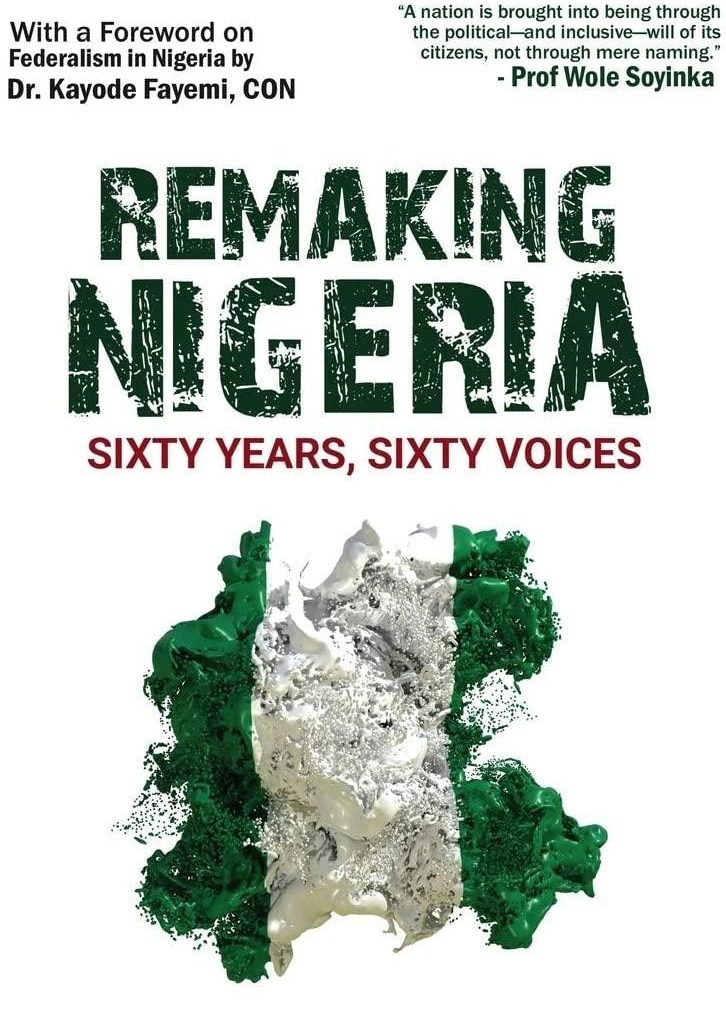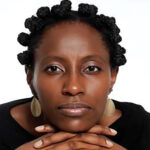[By ‘Yemi Adamolekun]
Hopeless, powerless, voiceless, helpless – an adaptation of a phrase my dear friend and sister, Aisha Yesufu, uses often to describe how Nigerians feel was my first title for this article. I believe there is power in the words that we say, and our words have enough creative power such that what we say and believe in our minds & hearts shape our reality.
I changed the title so the focus is not on the Nigeria that has stumbled to 61, but the Nigeria that will be standing tall at 100. I believe in Nigeria’s potential to truly be a great nation; the giant of Africa and indeed, a giant in the world. God has graciously blessed us with human and natural resources. Our location is strategic – literally halfway between Asia & the Americas. As a production hub, we would be unbeatable in terms of ease of access for distribution. We have lacked the leadership to harness our dogged spirit to build a nation of worth, valued at home and abroad, but we have built individual empires.

Despite the short-sightedness of those we’ve been unfortunate to have at the helm of affairs, Nigeria has still produced people that have transformed lives globally. Over the last sixty-one years, Nigerians have contributed positively to every area of human endeavour – academia, medicine, sports, and the arts to name a few. I’ve chosen one person/an idea for each decade with a synopsis of their impact to give an idea of actions that have left footprints in the sands of time.
1960 – 1970: Odumegwu Ojukwu
“If a leader accepts himself as already dead to society, there will be no reason for cowardice in his leadership. One thing that frightens leaders and leads them to a number of excesses is usually fear of death. No leader should fear death. In fact, you should accept the fact that from the moment of leadership you are sacrificed to death. Each subsequent day becomes a bonus for the preparation of one’s memorial.”
C.O. Ojukwu led the move for the independence of Biafra which started Nigeria’s civil war that ended on January 15, 1970. The agitation for an independent Biafra has not died. In addition, some Yorubas are also pushing for an Oduduwa Nation. What is clear is that there are significant groups of Nigerian citizens that believe the Nigerian state does not recognize them as equal stakeholders in the country.
1971 – 1980: Obafemi Awolowo, GCFR, SAN
“There is an urgent and massive need for moral and spiritual reconstruction: the kind which will help to demolish morbid desire for naked power and domination and ensure justice, equity and fair play for all.”
Often described as the best president Nigeria never had, Awolowo had a track record of good governance and it was easy to extrapolate from his antecedents in the Western Region what he would have done as Nigeria’s president. His legacy of “free” education would live on for generations. Educating students cost money, but it was “free” to the students because taxes were used judiciously. Awoists are likely the only group of political party members driven by an ideology. As a parallel, Mr Buhari, likely has more ardent followers than Awolowo, but the reason for the demi-god like worship is hollow in comparison. I also wonder if 30 years from now, there will be anyone of significance who identifies as a Buharist, as there are Awoists today.
1981 – 1990: Wole Soyinka
“The man dies in all who keep quiet in the face of tyranny.”
1986 Nobel Laureate for Literature and the first sub-Saharan African to be so honoured. Beyond his Nobel Prize, Wole Soyinka (WS as he is famously called) has consistently stood up for Nigeria. From taking over a radio station to his clear position on the Nigeria-Biafra war; his fight against the military rule; his vocal stance to ensure that the law was followed when President Yar’Adua was ill, to his scathing criticisms of the Buhari administration, he has consistently not kept quiet.
1990 – 2000: MKO Abiola – HOPE ‘93
Winner of what is adjudged to be Nigeria’s freest and fairest election to date, his campaign slogan was ‘Farewell to Poverty!’ Ironically, Nigeria is currently the poverty capital of the world. MKO Abiola declared himself president in 1994 and was jailed by General Sani Abacha for treason. He died in prison on July 7, 1998, on the eve of his release. He was pardoned in 2018, twenty-four years later, by the government of another military general and was given the national honour of Grand Commander of the Federal Republic (GCFR), which is reserved for presidents.
2001 – 2010: First Decade Free of Military Rule
We must move forward and lay the foundation for good governance and democracy. It is clear that Nigerians want a country where fairness, justice and equity are not mere slogans, but principles put into timely and indiscriminate practice.
– General Abdulsalami Abubakar during his July 20, 1998 address to the nation as we prepared to return to civilian rule in 1999.
2011 – 2020: Office of the Citizen
Used by different people in the US in the 20th century, the concept of the ‘Office of the Citizen’ resonated in Nigeria. I heard the phrase for the first time in 2014 from Mrs Oby Ezekwesili and Enough is Enough (EiE) Nigeria presented the idea to the public at its 5th anniversary event in 2015. Mrs Ezekwesili gave the keynote address, and she has consistently championed the message that the ‘Office of the Citizen is the highest office in the land’ so citizens must own that office and leverage their voices. In her words, “Stop looking to ANYONE to ACT for YOU. It is now time to ACT for your own sake. Don’t tweet at me to act. YOU have the power to act. ACT!”
Citizens who understand the power they have to elect and hold those in public office accountable can truly move mountains!
2021 – 2060: ‘Yemi Adamolekun
I am #OnePerson. I stumbled into this space, but I believe very deeply that Nigeria should and will be great. I believe I deserve better. It is really that simple and I see a clear role for myself in this season of my life. If a few more people believed they deserved better as well, Nigeria will be different.
The power of an individual shows that #OnePerson can and does make a difference in the words of Albert Schweitzer. #OnePerson is the theme of EiE’s 10th anniversary and its second decade as we celebrate those who have positively and significantly impacted their communities, big and small, and encourage other citizens to use their ‘voices’. ‘Voice’ is figurative. It can be speaking out or donating money to solve a problem, feeding the poor or running for elected office. We must stop looking outside of ourselves for a messiah but look inward, making a conscious decision to play our parts in the puzzle. In the words of Myles Munroe, “Whatever you avoid, you can never change. You must become the answer to your own prayer.”
Those in leadership positions are Nigerians; not Nigeriens; neither are they from the UK or Mars. They are Nigerians, so why do we continue to allow the worst of us to lead the best of us, and in the process make life difficult for all of us? In the famous words of Margaret Meade, “Never doubt that a small group of thoughtful, committed citizens can change the world. Indeed, it is the only thing that ever has.” Ojukwu, Awolowo and Abiola did not achieve their objectives, but they started a process, and their place is guaranteed in the history of Nigeria.
Nigeria, as an independent country, will be 100 in 39 years.
What do we see? What would we like to see?
How would we like Nigeria to be described during its centenary celebrations?
What you would like to see and what you believe is possible can be quite different.
If they don’t align, how do we get from here to there?
It is simple; yet complex. A dear egbon, Tunji Lardner, calls it complexicated (complex & complicated).
#One Person must determine that they represent light and hope.
However, as ‘hope’ is not a strategy for change, ‘voice’ must be activated, amplified, and deployed for the demonstration of ‘power’. Power only responds to power.
Really, what are you waiting for? Are you not tired? When will enough be enough? Even from a position of enlightened self-interest, we owe it to ourselves to act. Nigeria@100 is around the corner. We should act NOW!

- ‘Yemi Adamolekun is the Executive Director, Enough is Enough (EiE) Nigeria. This article was adapted from her contribution to Remaking Nigeria: Sixty Years, Sixty Voices, edited by Chido Onumah. The book is available at RovingHeights Bookstores & on Amazon.
